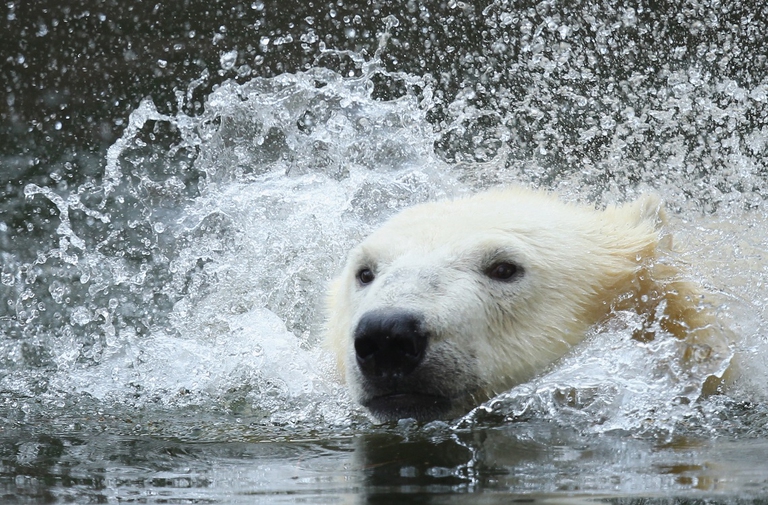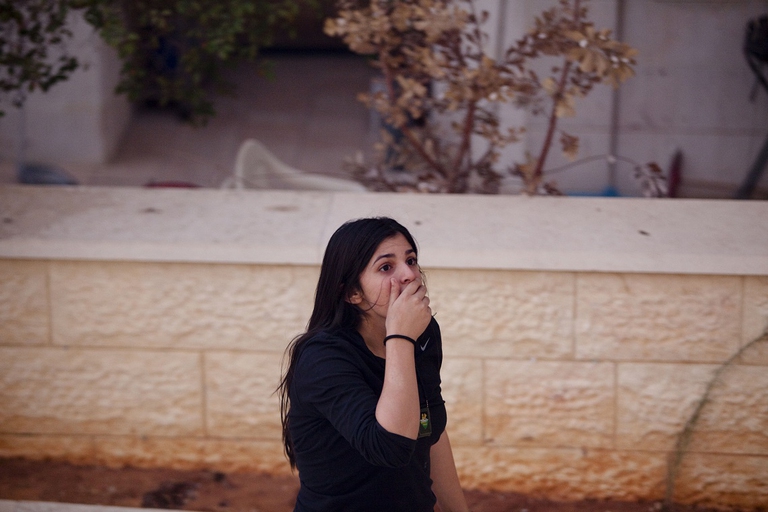
The 26th edition of the United Nations Climate Change Conference, COP26, will be held in Glasgow, Scotland in November 2020. The pre-COP will take place in Milan, Italy.
The COP24 climate conference is taking place in Katowice, Poland with the aim of establishing regulations that will bring the Paris Agreement into effect. And averting a planetary catastrophe.
The concentration of CO2 in the atmosphere continues increasing: the highest levels of the past three million years have just been recorded. Greenhouse gas emissions aren’t simply failing to decrease, they keep growing: over the past 22 years we’ve experienced 20 of the hottest years since records began, according to the World Meteorological Organisation. There’s no more time left, the abyss is widening underneath our feet and one misstep will spell tragedy for us all. The Special Report 15 (SR15), a document produced by the Intergovernmental Panel on Climate Change (IPCC) published in October once again underlines the absolutely urgent necessity for effective provisions to limit the growth of global average temperatures and climate change. Otherwise we’ll be have to face a “climate catastrophe”. According to the report, we have twelve years to halve worldwide emissions so that we remain below the plus 1.5 degrees Celsius limit established by the IPCC. With these objectives in mind, United Nations representatives are gathered in Katowice, Poland for the COP24 from the 3rd to the 14th of December, the 2018 UN climate change conference.
#COP24: Sir David Attenborough has presented the voices of people collected worldwide within #TakeYourSeat campaign, during which anyone can speak up about the ways to fight climate change. pic.twitter.com/iBKANLkNvm
— COP24 (@COP24) 3 dicembre 2018
The primary goal of the negotiations, which will end on the 14th of December, is to approve the Paris Rulebook, a set of regulations which will bring the 2015 Paris Agreement into effect. The treaty, ratified by 184 countries, sets forth objectives for global action on climate change and proposes that the increase in global temperatures be kept “well below 2 degrees Celsius”. During the talks, initiatives to counter climate change set out by the 198 member states will be analysed and evaluated.
Collective action by all states is necessary to reach the main goal but many aspects of the Paris Agreement aren’t binding for the nations who signed it, which means the UN can’t force them to comply. The gap between the commitments that have been made and what is actually needed is still too big, as the IPCC report highlights. “Key outcomes from this meeting of UN climate negotiators will lay the foundations for continued multilateral progress in tackling climate change at the scale and speed necessary to match what science tells us is needed”. These are the hopeful words of Manuel Pulgar Vidal, responsible for climate and energy at the WWF. “The scale of the challenge – and the opportunity – that this meeting presents should help focus minds”.
Read more: WWF’s Manuel Pulgar-Vidal: Addiction to coal is like alcoholism, you need shock therapy
We have green, clean energy at our disposal as well as the technology to make use of this energy effectively and efficiently. We could, without a doubt, completely stop extracting fossil fuels and truly try to stop climate change, but the opposite is happening. The global consumption of petrol has come close, for the first time in history, to a hundred million barrels a day, and investment in the extraction of highly polluting fuels such as lignite and tar sands continues apace.
During the campaign that led him to become president of the United States and then once in office, Donald Trump attacked the Paris Agreement, announcing that he doesn’t wish to respect the climate commitments made by the Obama administration. However, Article 28 of the treaty establishes that no country can abandon its commitment before three years have passed since its coming into effect. Thus, the US continues to send delegations to summits like the COP24 while it waits for 2020, when the accord kicks in. Meanwhile, Brazil announced a few days ago that it intends to retract its proposal to organise the COP25, planned for the 11th to 22nd of November 2019, thus dispelling any doubts about President-elect Jair Bolsonaro’s environmental policy orientation.
Changes to our climate are already altering entire ecosystems, forcing the organisms that live in them to move to more favourable climates. For thousands of animal and plant species the increase in temperatures could turn out to be fatal, and the difference between a 1.5 or 2 degree increase is, literally, a matter of life and death. Coral reefs, for example, are invaluably precious troves of biodiversity and are in grave danger because of rising sea temperatures. This phenomenon is causing coral bleaching, which, according to researchers, will mean coral reefs are the first ecosystems to become extinct in the modern age.
Directly or indirectly global warming threatens many animal species, such as koalas, who need to drink more because of the heat, many reptiles whose sex is determined by the temperature before eggs hatch and thus risk extinction, sterns, forced to migrate to colder climates, steinbocks, who are seeing the alpine pastures they depend on greatly diminish. The disappearance of these species, along with tens of thousands of others, would be an incalculable loss for our planet and our species. According to a recent study, 3 to 5 million years will need to pass before current levels of biodiversity are re-established. We, on the other hand, might not even still exist.
Other than bringing the Paris Agreement into effect, the COP24 should also mark the start of a series of initiatives, including the strengthening of climate action both before and after 2020, accompanied by financing and other types of support for developing countries, according to the WWF. It should also make nations take more responsibility, increasing the transparency of their actions to fight climate change and addressing the inadequacy of the measures that have already been undertaken, providing precise indications of what needs to be done, including better integration of nature-based measures.
Siamo anche su WhatsApp. Segui il canale ufficiale LifeGate per restare aggiornata, aggiornato sulle ultime notizie e sulle nostre attività.
![]()
Quest'opera è distribuita con Licenza Creative Commons Attribuzione - Non commerciale - Non opere derivate 4.0 Internazionale.
The 26th edition of the United Nations Climate Change Conference, COP26, will be held in Glasgow, Scotland in November 2020. The pre-COP will take place in Milan, Italy.
Thanks to activists, the voice of the world’s peoples resounded through the COP25 like an alarm bell. Governments didn’t reach the results they demanded, but their cries and messages were stronger than ever, reaching even those who weren’t in Madrid.
Climate change poses a risk for millions. However, women are the most vulnerable to its negative consequences: a few simple considerations by the Italian Climate Network help us perceive the global implications of this.
The COP25 ended two days late and with very few steps ahead made. Climate negotiations in 2020 will be an uphill battle as political will clearly seems to be lacking, once again.
The last ten years have been the most “exceptional” and hottest decade ever, with extreme weather hitting people and ecosystems harder and more frequently. 2019 is also on course to becoming the second or third hottest year since records began.
Unite Behind the Science: this was the title of the conference held at the COP25 on 10 December. Greta Thunberg’s presence filled the arena, but this time it was scientists’ turn to speak.
25,000 delegates meet for the COP25 from 2 to 13 December. What can we hope this UN climate change conference, whose venue was changed from Santiago de Chile to Madrid, will achieve?
100 eminent people from all over the world, including Vandana Shiva, Naomi Klein and Noam Chomsky, have signed an open letter after the disappointing results of the COP24. A call-to-arms for climate against world leaders’ indifference.
The outcome of the COP24 in Katowice left many unsatisfied. Greta Thunberg, a young Swedish environmental activist, gave a harsh, heartfelt speech addressing world leaders.









